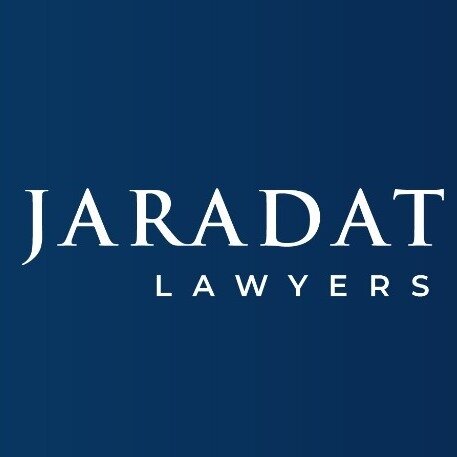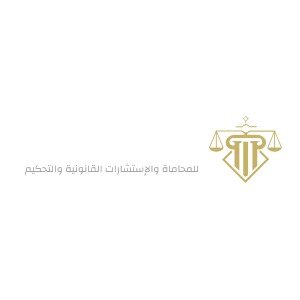Best Renewable & Alternative Energy Lawyers in Hashemite Kingdom of Jordan
Share your needs with us, get contacted by law firms.
Free. Takes 2 min.
Or refine your search by selecting a city:
List of the best lawyers in Hashemite Kingdom of Jordan
About Renewable & Alternative Energy Law in Hashemite Kingdom of Jordan
Renewable and alternative energy law in the Hashemite Kingdom of Jordan governs the production, distribution, and utilization of energy derived from renewable sources such as solar, wind, biomass, and hydropower. Over the past decade, Jordan has emerged as a regional leader in the Middle East in its efforts to diversify its energy sector and reduce dependency on imported fossil fuels. This progress is largely due to governmental policies, legal frameworks, and incentives that encourage investment in alternative energy solutions. Regulatory bodies, such as the Ministry of Energy and Mineral Resources, play a significant role in shaping and overseeing these laws to promote sustainability, environmental protection, and energy security.
Why You May Need a Lawyer
Engaging a lawyer with expertise in renewable and alternative energy law in Jordan is valuable in many situations. Common scenarios include navigating complex licensing procedures for solar or wind projects, interpreting purchase agreements, resolving land use disputes, negotiating with governmental bodies, and ensuring compliance with local environmental and grid connection standards. Legal counsel is also beneficial when handling financing and investment contracts, understanding incentive programs or government subsidies, and addressing intellectual property concerns related to new technology. For foreign investors, legal guidance helps interpret Jordanian laws and international agreements that may impact cross-border projects or partnerships.
Local Laws Overview
Jordan’s legal framework for renewable and alternative energy is shaped by several important regulations and national strategies. The Renewable Energy and Energy Efficiency Law No. 13 of 2012 is the cornerstone legislation, facilitating private sector involvement in the energy market and outlining the processes for direct proposal submissions, project licensing, and grid connection. Incentives include customs exemptions and income tax reductions for qualifying projects. The electricity sector is regulated by the Energy and Minerals Regulatory Commission, which issues licenses and sets tariffs. Additionally, environmental and land use regulations must be considered, particularly for projects impacting protected areas or requiring land acquisition. Compliance with grid codes and technical requirements imposed by the National Electric Power Company is essential for any project seeking integration into the national grid.
Frequently Asked Questions
What are the main sources of renewable energy in Jordan?
The most prominent sources are solar and wind energy, followed by smaller contributions from biomass and hydropower projects.
Is it possible for private individuals to invest or develop their own renewable energy projects?
Yes, individuals and companies can develop renewable energy projects, subject to compliance with licensing requirements and technical standards.
What incentives does the Jordanian government offer for renewable energy projects?
Incentives include customs duties exemptions, tax breaks, and guaranteed power purchase agreements for approved projects.
How is renewable energy integrated into the national grid?
Projects must meet technical standards set by the National Electric Power Company and obtain necessary permits for connection.
Are there restrictions on land use for renewable energy projects?
Yes, land use regulations and zoning rules must be followed, especially in environmentally sensitive or protected areas.
What is the process for obtaining a renewable energy project license?
Applicants typically submit proposals to the Ministry of Energy and Mineral Resources, fulfill regulatory requirements, and secure approvals from relevant authorities.
What are the environmental compliance obligations for developers?
Developers must conduct environmental impact assessments and secure necessary clearances from the Ministry of Environment.
Can foreign companies invest in renewable energy in Jordan?
Yes, foreign entities are encouraged to invest, but they must comply with local ownership and operational regulations.
How are electricity tariffs set for renewable energy projects?
The Energy and Minerals Regulatory Commission sets tariffs, often through competitive bidding or direct negotiations.
What happens if a project fails to comply with legal or regulatory requirements?
Non-compliance can result in penalties, license revocation, or project suspension by the authorities.
Additional Resources
- Ministry of Energy and Mineral Resources - the main governmental body overseeing energy policy and project approvals. - Energy and Minerals Regulatory Commission - responsible for licensing and regulation in the energy sector. - National Electric Power Company - manages grid operations and interconnection. - Jordan Renewable Energy and Energy Efficiency Fund - provides funding and support for qualifying projects. - Ministry of Environment - handles environmental approvals and assessments.
Next Steps
If you require legal help related to renewable or alternative energy in Jordan, begin by gathering all documentation regarding your project, including any contracts, permits, or correspondence with authorities. Identify the specific legal questions or challenges you are facing, such as licensing, compliance, or partnership arrangements. Consult with a legal expert specializing in energy law, particularly one with local expertise in Jordan’s legal environment. They can help you understand your rights and obligations, navigate regulatory procedures, and represent your interests before authorities or in any dispute resolution processes. Consider reaching out to the governmental bodies listed above for guidance and to obtain information on specific regulations affecting your project.
Lawzana helps you find the best lawyers and law firms in Hashemite Kingdom of Jordan through a curated and pre-screened list of qualified legal professionals. Our platform offers rankings and detailed profiles of attorneys and law firms, allowing you to compare based on practice areas, including Renewable & Alternative Energy, experience, and client feedback.
Each profile includes a description of the firm's areas of practice, client reviews, team members and partners, year of establishment, spoken languages, office locations, contact information, social media presence, and any published articles or resources. Most firms on our platform speak English and are experienced in both local and international legal matters.
Get a quote from top-rated law firms in Hashemite Kingdom of Jordan — quickly, securely, and without unnecessary hassle.
Disclaimer:
The information provided on this page is for general informational purposes only and does not constitute legal advice. While we strive to ensure the accuracy and relevance of the content, legal information may change over time, and interpretations of the law can vary. You should always consult with a qualified legal professional for advice specific to your situation.
We disclaim all liability for actions taken or not taken based on the content of this page. If you believe any information is incorrect or outdated, please contact us, and we will review and update it where appropriate.
Browse renewable & alternative energy law firms by city in Hashemite Kingdom of Jordan
Refine your search by selecting a city.















